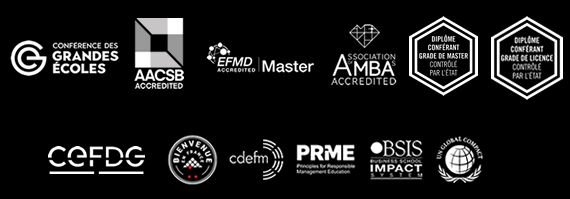The EMLV Professor Shameek Sinha was recently interviewed by Forbes magazine on his recent research on a new approach that could replace the old CRM models. The new Customer Portfolio Management (CPM) model can revolutionize the long-term companies’ marketing tactics and improve their survival.
Shameek Sinha is a researcher and a marketing professor at EMLV specializing in Empirical and Analytical Methods and Strategic Decision Making.

Shameek Sinha, professor of marketing at Leonardo da Vinci Business School in Paris France
In a recent paper co-authored with Leigh McAlister, a marketing professor at the University of Texas, Shameek Sinha introduces a new customer portfolio management model that relates company’s marketing to its long-term survival. The article appeared in the Journal of the Academy of Marketing Science in January. According to Sinha and McAlister, customer relationship management (CRM) models are “short term, because the marketplace outcomes on which they focus represent short-term performance and because these models consider only a company’s current customers.” They come with a new long-term approach, the customer portfolio management, that “complements these macro and micro models by assessing the relationship between marketing and a company’s customer mix”.
Shameek Sinha’s interview in Forbes on the Customer Portfolio Management
The interview was conducted by Gary Drenik, CEO of Prosper Business Development, and published on www.forbes.com on April 14th, 2021.
Drenik: What would you say is one of the key outcomes/findings from your research on CPM?
Shameek Sinha: In the context of the automotive market we consider automakers’ mixes of three types of customers: Youth, Adults and Seniors. As you might imagine, big American automakers’ customers have aged, and those automakers’ customer-mixes are now dominated by Seniors. To survive, those automakers must attract more Youth to their franchise. Using Prosper Insights & Analytics data, we were able to show that Ford and Honda have higher concentrations of Youth in their customer mixes than does General Motors. In addition, our model reveals that Honda attracts Youth with its fundamental positioning. Ford, though, is able to attract more Youth by using emerging media to attract Youth more effectively than is done by other automakers.
Drenik: Why should an organization consider a CPM approach for creating customer value? (What is the logic behind adopting a CPM Model?)
Sinha: As discussed earlier, CPM models provide a long-term perspective of customer management. The proposed model cannot tell a company when to switch from focusing on currently valuable loyal customers to begin focusing on less valuable entry-level customers that are vital for survival. The proposed customer portfolio management model provides a tool to help harmonize the two. If a company knows, for each marketing intervention, the influence of that intervention on each important customer type, then the company can assemble a portfolio of marketing interventions, some more strongly attracting currently valuable customers and others attracting valuable-in-the-future customers, such that the collection of marketing interventions bring balance to the customer mix.
Find the article on : www.forbes.com.



















